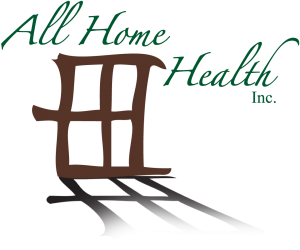Persons with disabilities living independently in the community are provided assistance and support by All Home Health. This includes the elderly and those with special health care requirements. Personal care is provided at the recipient’s home or in the community when normal life activities take him or her out of the house.
Eligible Services for Medical Assistance Payment
Four categories of personal care assistance (PCA) services are eligible for payment from Medical Assistance:
- Activities of daily living (ADLs)
- Instrumental activities of daily living (IADLs)
- Observation and redirection of behaviors
- Health-related procedures and tasks
PCA Service Criteria
When the following criteria are met, a personal care assistant (PCA) may assist with these four categories of PCA services:
- The PCA care plan describes the recipient’s needed assistance
- Training of the PCA worker is specific to the person’s needs and occurs in the first 14 days of PCA service for the person (unless the person has PCA Choice)
- Documentation of the individualized training regarding the needs of the recipient is in the agency file
- The PCA worker documents services rendered on the timesheet and/or in another agency form
Some needs may not be met by PCA services. Referrals to other resources and services may be required. PCA services require prior authorization for payment.
Covered Services
A PCA worker may assist the person with the following ADLs:
- Dressing
- Including the application of clothing and special appliances or wraps.
- Grooming
- Including basic hair care, oral care, shaving, basic nail care, applying cosmetics and deodorant, care of eyeglasses, and hearing aids.
- Bathing
- Including basic personal hygiene and skincare.
- Eating
- Including completing the process of eating, including hand washing and application of orthotics required for eating, transfers, and feeding.
- Transfers
- Including assistance to transfer the person from one seating or reclining area to another.
- Mobility
- Including assistance with ambulation, including use of a wheelchair; not including providing transportation.
- Positioning
- Including assistance with positioning or turning a person for necessary care and comfort.
- Toileting
- Helping people eliminate and care for their bowels and bladders. Transfers, mobility, positioning, feminine hygiene, use of toileting equipment and supplies, cleansing of the perineal area, and adjusting clothing are all included.
Instrumental Activities of Daily Living (IADLs)
An adult may receive assistance from a PCA with the following activities:
- Accompany to medical appointments
- Accompany to participate in the community
- Assist with paying bills
- Communicate by telephone and other media
- Prepare and prepare meals, shop for food, clothing, and other essentials integral to PCA services
A PCA worker may assist a child with IADLs when:
- Personal care services require immediate attention due to health and hygiene concerns;
- According to the service plan, the assessor has indicated this need
Observation and Redirection of Behaviors
If the PCA worker observes behavior requiring redirection as outlined in the care plan, he or she may offer it to the recipient.
Health-Related Procedures and Tasks
The following conditions must be met in order for a licensed health care professional to delegate health-related tasks to a personal care assistant:
- Health-related procedures and tasks meet the definition
- PCA workers are trained and supervised by qualified professionals
- Performs tasks and procedures safely as a PCA
- As part of the recipient’s personal care assistance care plan and the files of the recipient and PCA workers, the qualified professional has documented the delegation of health-related procedures and tasks
Health-related procedures and tasks may include:
- Self-administration of medications: Assistance
- Observation and monitoring of seizure disorders
- Maintaining a person’s strength and muscle function through range of motion and passive exercise
- Suctioning through a tracheostomy and providing services to patients on ventilators
- Other activities included in the scope of PCA services and meeting criteria for health-related procedures and tasks
